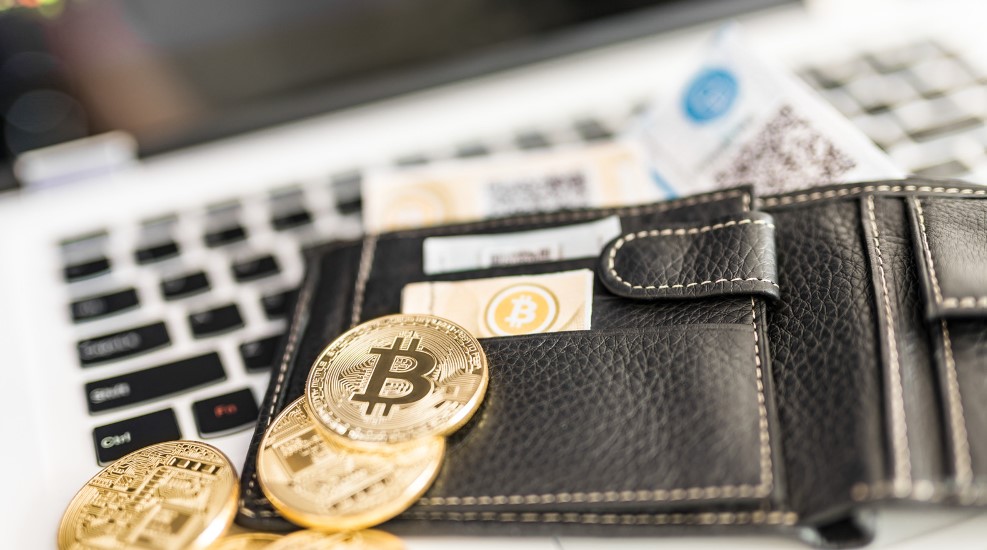When cryptocurrencies were introduced to the world more than a decade ago, no one would have thought that they would be where they are today.
Following the success of Bitcoin, other cryptocurrencies like Ethereum and other tokens emerged, each designed to serve different purposes and solve real-world problems.
This growth created a need for secure crypto storage options, resulting in various types of crypto wallets.
A crypto wallet is a digital tool that is used by cryptocurrency holders to store, send, and receive digital assets.
This is done by managing public and private keys. Choosing the right cryptocurrency wallet for your digital assets is crucial. There are many UK wallets for crypto users to choose from. According to Kane Pepi, choosing a secure wallet is vital to ensure that your crypto investment remains safe and protected from hackers.
When choosing a wallet, it’s important to consider factors such as security features, user-friendliness, fees, and more.
Types of Crypto Wallets

Crypto wallets can be divided into cold (offline) or hot (software) wallets:
Hot Wallets
A hot or software wallet is connected to the internet and is ideal for frequent transactions. Because they are connected to the internet, these wallets are more vulnerable to hacks.
There are three types of software wallets: mobile wallets, web wallets, and desktop wallets. For those who prioritize convenience over security, then a mobile wallet may be the right option for you.
Web wallets like MetaMask are easy to use and manage but have the disadvantage of third-party management of your private keys.
Desktop wallets, while not as convenient as a web wallet or mobile wallet, offers more security. Users can install these wallets on PCs and manage their private keys themselves.
Cold Wallets
When using a cold wallet, you don’t need to be connected to the internet to generate keys. This feature makes them safe from cyberattacks.
There are two types of cold wallets, including hardware wallets and paper wallets. These wallets are considered the safest and can be used for long-term storage. Ledger and Trezor are examples of hardware wallets.
Paper wallets are also considered to be cold wallets. They are printed copies of the QR code of your private and public keys.
Paper wallets are very secure but prone to loss or damage, which makes them a less likely choice for crypto traders, despite them being safe.
Besides hot or cold wallets, it is also important to know the key differences between custodial and non-custodial wallets.
- Custodial wallets: These wallets are ideal for people who prefer convenience despite the potential security risks they may be exposed to. They are managed by third parties, such as cryptocurrency exchanges. These third parties are responsible for the security of your digital assets and the management of your private keys.
- Non-custodial wallets: These wallets give users full control of their digital assets and management of their private keys. This is the most secure and private option for users since there’s no risk of hacking through third-party breaches.
These different types of wallets offer different features that users have to consider when choosing a crypto wallet.
Top 11 Things to Consider When Choosing a Crypto Wallet
1. Security Features

Security is one of the most important features to consider when you are looking for a crypto wallet. Hardware wallets are usually seen as the most secure because they offer offline storage.
You need to look for a wallet with strong encryption capabilities, one that offers two-factor authentication (2FA), and lastly, one with biometric access.
2. Private Key Ownership
There is a saying in the crypto space that goes, “Not your keys, not your crypto.” This simply means that as long as you do not have full control of your private keys, then you do not own your crypto.
Choose a wallet that gives you full control of your private keys to protect your assets from potential security breaches at third-party wallet providers.
3. Wallet Type
Your specific needs will determine the type of crypto wallet you need. Consider hardware wallets for long-term storage or software wallets for frequent transactions.
When selecting a wallet, make sure it’s compatible with your preferred cryptocurrency.
4. Supported Cryptocurrencies

Before choosing a wallet, you need to compile a list of all the cryptocurrencies you intend to trade or store.
Then, check which wallets support your chosen cryptocurrencies. Some wallets only support popular crypto like Bitcoin and Ethereum, while others support a wider range of altcoins.
It is more practical to find a wallet that supports the cryptocurrencies you are interested in.
5. Ease of Use
A wallet that has simple and clear set-up instructions is the better option. It should also have clear instructions for making transactions.
Additionally, look for a wallet with a user-friendly interface, especially if you are a newcomer to the crypto space.
6. Compatibility
Ensure that the wallet you intend to use is compatible with your device. Your chosen wallet should work on your preferred platform, be it mobile, desktop, or web.
7. Backup and Recovery Options
Choose a wallet that offers you reliable backup and recovery mechanisms. Most wallets generate a 12 to 24-word recovery phrase during your setup.
This phrase can be used to derive your private keys and it should be written down and stored securely offline. Reliable wallets will offer guidance on how to properly back up your recovery phrase.
8. Transaction Fees
Like any service, wallet transaction fees may vary based on provider. Be sure to understand the charges beforehand to avoid disappointment or disputes.
Check if the wallet allows you to customize the transaction fees based on transaction speed.
Consider different types of fees, including transaction fees, storage fees, conversion fees, and exchange fees. Be aware of the potential charges before facilitating a transaction.
9. Customer Support

One of the most frustrating experiences you can encounter is engaging the services of a provider who responds promptly when you have questions or need assistance.
Read reviews of different wallet providers’ customer service ratings before committing to your assets. Issues regarding funds always need prompt assistance or clarification. Look for wallets that have a responsive support team.
10. Multi-Signature Support
Choose a wallet that supports multiple signatures, especially if you are managing funds with multiple parties.
You can specify the number of participants who have authority over the wallet as well as the number of participants to approve transactions. For instance, if the wallet has eight participants, three can be chosen to approve transactions.
This feature enhances the security of your wallet, requiring multiple approvals before a transaction can be processed.
11. Regulatory Compliance
Some wallets align with regional regulations, and offer users additional layers of security and legal protection.
Regulated wallets are typically required to maintain high standards of cybersecurity, including regular audits and the implementation of best practices to protect your assets.
While regulatory compliance can provide added security, regulations can vary significantly between regions, and it is still evolving. Research the specific regulations applicable to your region.
Conclusion
When selecting the right cryptocurrency wallet for your digital assets, it is essential to assess your options and prioritize what matters most.
Whether you are more concerned about compatibility or accessibility, your funds must remain secure at all times.
Author Profile

- Blogger by Passion | Contributor to many Business Blogs in the United Kingdom | Fascinated to Write Blogs in Business & Startup Niches |
Latest entries
 BusinessJanuary 9, 20266 Fastest Cash House Buyers in the UK 2026
BusinessJanuary 9, 20266 Fastest Cash House Buyers in the UK 2026 BusinessDecember 12, 2025The Smart SME’s Guide to Future-Proofing Physical Assets
BusinessDecember 12, 2025The Smart SME’s Guide to Future-Proofing Physical Assets FinanceOctober 28, 2025How to Measure the ROI of Your Promotional Product Campaigns?
FinanceOctober 28, 2025How to Measure the ROI of Your Promotional Product Campaigns? Home & LivingOctober 4, 2025Moving Forward When Leicester Family Dynamics Change
Home & LivingOctober 4, 2025Moving Forward When Leicester Family Dynamics Change





